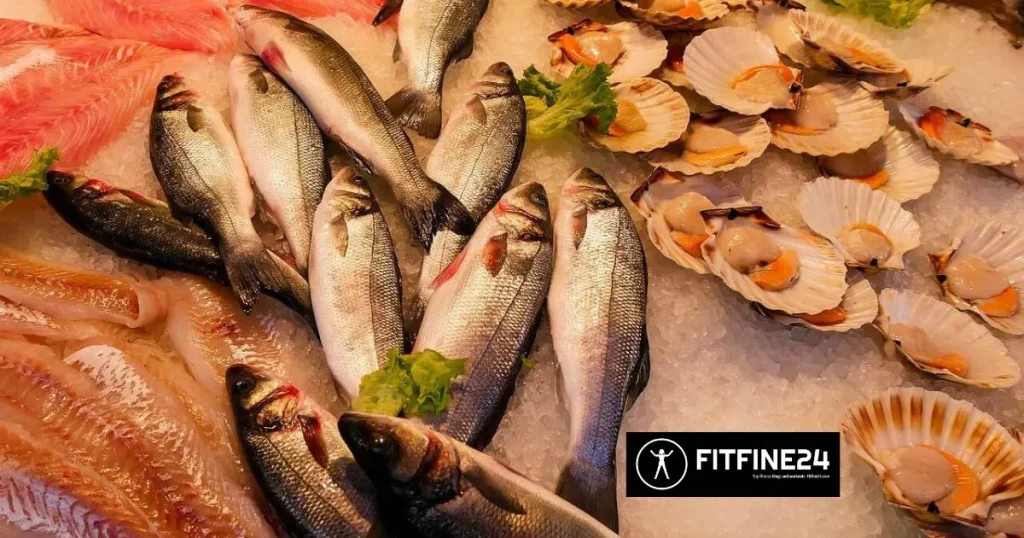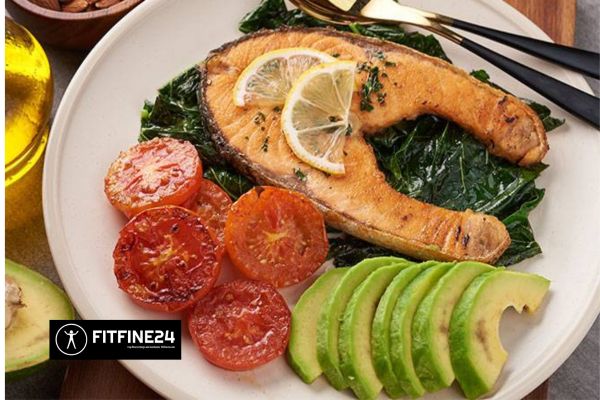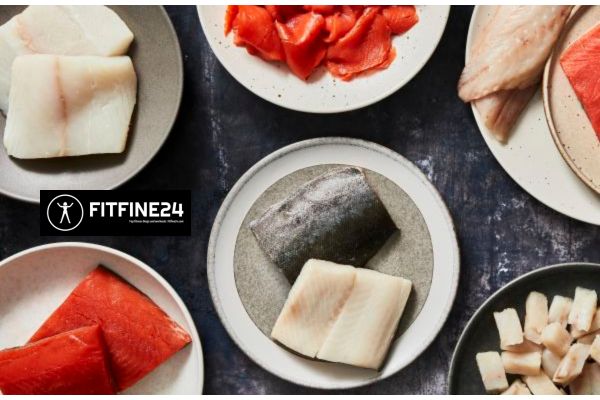Introduction
The pescatarian dietis a big trend in health and wellness, and for good reason! The concept of this plan is that, by taking the best from a vegetarian diet and combining it with all the proven health benefits of seafood, you end up with an optimum balance to your nutrition profile—making this ideal for anyone looking to cut down on meat consumption but without scrimping on top quality protein. This article will further explore the main reasons behind its rising popularity, what it has in store for us, and how one can effectively switch to this lifestyle choice.

What is a Pescatarian Diet?
Pescatarian: Similar to a vegetarian, but you can also eat fish. It includes vegetables, fruits, legumes, and whole grains as plant-based foods; with fish and shellfish playing a key role in the diet. This allows for flexibility and diversity, which is a very good option if you are interested in healthier eating but do not want to be vegetarian dishes or vegan.
Top Benefits of the Pescatarian Diet At fitfine24
Rich in Omega-3 Fatty Acids
The star of the pescatarian diet is that you can include lots and lots of seafood with Omega-3 fatty acids. These essential fats are good for your heart, reduce inflammation, and support brain function. The best sources of omega-3s are fish like salmon, mackerel, and sardines.
Supports Weight Management
The majority of pescatarians also find it easier to maintain a healthy weight, literally, because the consumption is in nutrient-dense, low-calorie foods so you can fill up without overconsuming. Fish is also a lean protein to help keep you full, minus the red meats’ empty calories. When supplemented with an abundance of veggies, this could be a good diet for natural weight loss or maintenance.

Encourages Nutritional Balance
Pescatarian Diet This type of diet is composed primarily of plant-based foods, as well as seafood. It reduces some of the nutritional risk factors for cardiovascular disease, such as obtaining more vitamin D, B12, and other common nutrient deficiency nutrients (iron is a killer) that are sometimes harder to receive on a strict vegetarian diet.
Eco-Friendly option
Pescatarians have been reported to have a lower carbon footprint (about 1.2 kg of CO2 equivalents for each meal compared with 6 kilograms when beef was consumed—for comparison, vegetables and grain-based diets generate less than half this amount). By sticking with sustainably sourced seafood and plant-based meals, you can eat a delicious diet that also helps minimize your carbon footprint.
Pescatarian Foods To Keep Key Ingredients
Fatty Fish and Seafood: Salmon, trout, mackerel, shrimp, and tuna.
Fruits and vegetables: Lettuce, berries, avocados, carrots& cruciferous veg.
Complex Carbohydrates: Brown rice, quinoa, oats and whole-wheat pasta
Greens-Kale, SpinachProteins-Lentils (Not beans or chickpeas), Chickpeas, Black Beans/Egg WhiteEdamame
Some typical examples are almonds, chia seed pudding, and walnuts in one category as a nut or flaxseed, which is classified with nuts in the other.node1Nutrition Examples Range feeling Grains Bread & Cereal Products Rice Barley Crackers Pancakes Pasta Milk products Fluid Milk Cheese Sour cream Yogurt Meats Poultry Fish Fresh wild game Eggs Legumes Seeds Nuts Peanuts Beans Processed Soybeans Dairy Dry beans Nut butter Spice Misc.

Pescatarian High-Protein Diet, it all started!
Cut Meat Intake Slowly: If that is a little demanding, consider replacing one or two meals per week with fish instead of meat.
Variety: Include different vegetables and whole grains to make each meal unique and nutritionally sound.
Start eating cleaner seafood. When you are thinking of regular fish, go for wild-caught or responsibly farmed to swim sustainably.
Pre-prepare your meals: If you do not want to keep going back and forth on the diet, then pre-plan all of your meal clicks. There are millions of delicious recipes out there; make yourself excited about taste too.
Should you Try the Pescatarian Diet?
If you are seeking a flexible, nutrient-powerhouseway of eating and one that supports your total mind-body health, then this is the Pescatarian diet. For those of you who enjoy seafood but would like to eat less meat, it is a good alternative as well. As a rule, before making significant changes to your diet (or whenever you have options), consult with a healthcare professional or nutritionist if possible, particularly due to specific health and dietary considerations.

Conclusion
Thisdiet good nutrition provides a centered alternative to plant-based nutrition while consuming rich protein and omega-3s from our sea. The more people follow this diet, the more they realize that it can contribute both to pleasure and health for a person over an extended period. This diet is best for those who want to eat a healthy diet without giving up too much choice in the foods they are going to cook or flavor.

